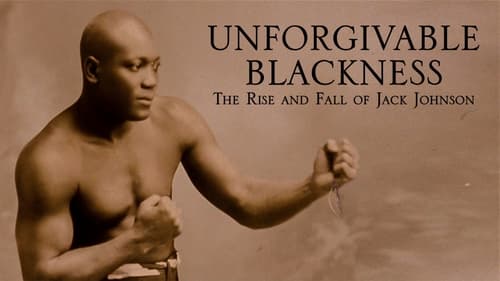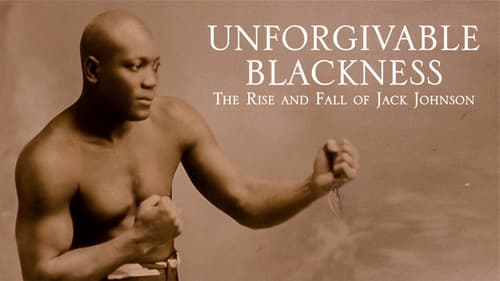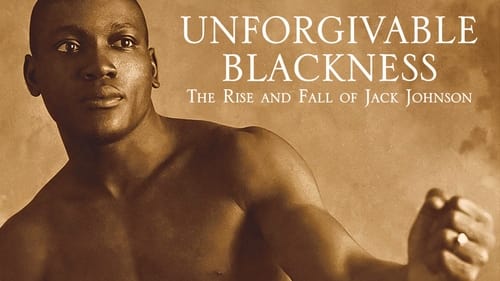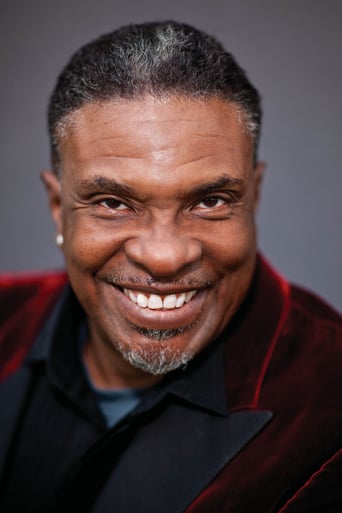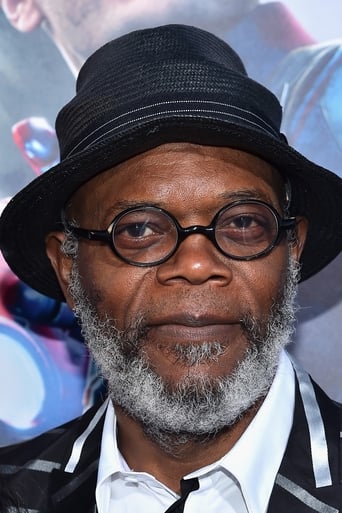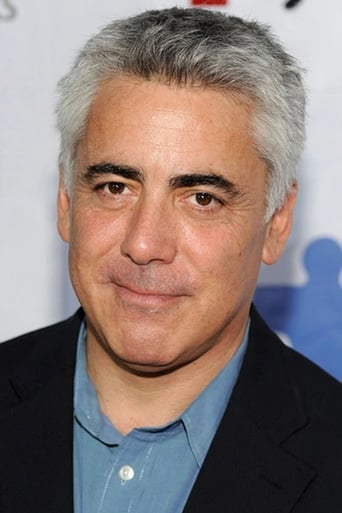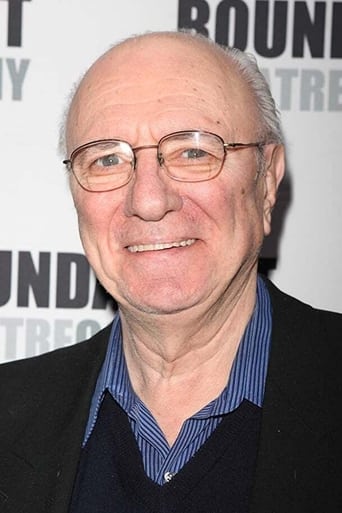Karry
Best movie of this year hands down!
KnotMissPriceless
Why so much hype?
Claysaba
Excellent, Without a doubt!!
Teringer
An Exercise In Nonsense
classicsoncall
Along with a compelling portrait of the first black World Heavyweight Boxing Champion, "Unforgivable Blackness" presents a dynamic history of America at the turn of the Twentieth Century and the prevalent attitudes toward race relations only a half decade removed from the Civil War. In his quest to become champion, Jack Johnson infuriated white America by the way he lived his life, and at certain points, managed to earn the enmity of fellow blacks as well while consorting with white women and living a flagrant lifestyle. Most remarkable, to me at least, was the actual boxing footage from the early 1900's, preserved to an astonishing degree while presenting Johnson's skill in the ring and his ever apparent smile while destroying opponents and challenging the world to accept his equanimity in the face of physical and verbal abuse. When one thinks about it, it's probably a miracle that the man survived his near decade as champion without enduring an assassination attempt. At nearly three and a half hours, Ken Burns has once again done his homework in presenting a narrative that's as compelling as any drama, and offers a rich history for sport and history buffs alike.
kayaker36
Those looking for a sports documentary will be keenly disappointed. By relying on a ridiculously small number of commentators and sources, Ken Burns has put together a four hour indictment of white America for its past racism and intolerance. The sources not only are limited in number but only one of them--he late Burt Sugar--could claim real familiarity with boxing. And never was there anyone so in love with sound of his own voice. The man simply cannot shut up.The rest all are far-left hacks like Village Voice journalist Jack Newfield or like Stanley Crouch racial militants with nothing relevant to contribute but with a heavy political agenda leading to some very warped judgments about the era in which Jack Johnson lived and the man himself. While Jack Johnson was a great heavyweight, a real genius inside the ring, outside of it he was in no way the icon of racial struggle he is portrayed as here. Any comparisons to Muhammad Ali are far off base.Mike Tyson is the closest parallel with, below the waist, some Tiger Woods into the bargain, and while professional boxing recovered from Jack Johnson with great sportsmen like Gene Tunney and Joe Louis to later hold the title, Tyson has left such a bad smell that the prize ring probably will never recover its former luster.
danval3
As the author of a biography about Canadian heavyweight champion Tommy Burns, I can tell you Unforgivable Blackness didn't tell the whole story by portraying Tommy as a racist who had to be badgered into fighting Jack Johnson. Until Tommy Burns came along, all the heavyweight kings had been white Americans who openly drew the so-called 'colour line,' refusing to fight blacks. Tommy, who fought seven African-American boxers on his way up, announced the day that he won the title that he would take on all comers, regardless of race or religion. Among other things, Tommy Burns did the following: * Break the colour line by becoming the first white champ to fight a black boxer (Jack Johnson). * Become the first champ to give a Jewish boxer (Joseph Smith) a crack at the title. * Married a black woman. * Hire two black sparring partners. * Befriend and socialize with black fighter Billy Woods. Tommy Burns was a racist by the standards of 2007, often using the 'n' word in interviews. But by the standards of his era, he was a very progressive individual. And although director Ken Burns doesn't acknowledge it in his otherwise very good film, if it wasn't for Tommy Burns, no one alive today would know or care who Jack Johnson was. Dan McCaffery, author, Tommy Burns: Canada's Unknown World Heavyweight Champion
James McNally
I saw this film at the 2004 Toronto International Film Festival. It may seem hard to believe, but I've never seen a Ken Burns film. I've always meant to, of course, but watching a multi- part documentary series is something of a commitment. So I jumped at the chance to see an entire film in one sitting. Clocking in at an impressive 218 minutes (and including a short intermission and a lively Q&A session, I was in the theatre for almost 4½ hours), I was hoping that the quantity would be matched by the quality. I was not disappointed.Jack Johnson was a true original. The first black man to hold the heavyweight boxing championship, he was a self-assured man who dressed well, drove fast cars, and kept white women as girlfriends. While not unusual now, this was highly irregular a hundred years ago, at a time when black lynchings were at their peak and the press regularly printed offensive cartoons to go along with its racist rhetoric. In the ring, he was a highly intelligent boxer, favouring a defensive style unknown in his day. He was also incredibly sensitive and articulate, especially for a man with only five years of formal education. But the struggles Johnson faced were almost insurmountable. No white champion would agree to fight a black man. Jim Jeffries preferred to retire undefeated rather than face Johnson, and Johnson had to travel around chasing champ Tommy Burns, hounding him to give him a title shot. When Burns finally agreed to a fight in 1908 (for a purse of $35,000, an unbelievable sum in those days), the contest wasn't even close, with Johnson dancing around, taunting his opponent, and talking to people in the ringside seats. The police stepped in during the fourteenth round to prevent him from knocking out the badly beaten Burns.Johnson held the title from 1908 until 1915, with his most famous bout in 1910, against ex- champ Jeffries, whom he soundly defeated. This led to race riots all over the country, and many people were killed. From the moment he won the championship, it seemed that white society looked for ways to discredit him. The press were relentless, printing hostile editorials and calling for a "Great White Hope" who would return boxing's crown to its rightful place (and race). When a 37-year old Johnson finally lost the championship to Jess Willard, a giant man ten years his junior, it seemed to many that the black race had been taught an important lesson.Johnson's life was troubled, and he continued to face persecution from the press and even law enforcement, who prosecuted him on charges related to his "debauchery" with white women. He eventually served a year in prison. There would not be another black heavyweight champion until Joe Louis, 22 years later.This is a remarkable film for many reasons. First of all, in the little-known story of Jack Johnson, Burns has found a microcosm of the racial situation of the day, and one that has many echoes even now. Muhammad Ali, after seeing James Earl Jones portray Johnson in the Broadway play "The Great White Hope" (later made into a film), declared that Johnson's life story was similar to his own. A black man choosing to live as a free individual on his own terms is something that is still hard for some white people to tolerate.Burns' film is also remarkable for the way in which it uses actual archival film of Johnson's bouts. Using silent film, Burns and his crew have added sound effects such as crowd noise and the sounds of blows connecting, and it gives these scenes the visceral punch they require. Finally, the superb "talking heads" (including the late George Plimpton, James Earl Jones, and the witty Stanley Crouch) and voice talent (Samuel L. Jackson is the voice of Johnson; others include Billy Bob Thornton, Derek Jacobi, Brian Cox, and Alan Rickman) bring the extraordinary story of Jack Johnson vividly to life.As an added bonus, you get to hear James Earl Jones say "balls". Twice.(9/10)


